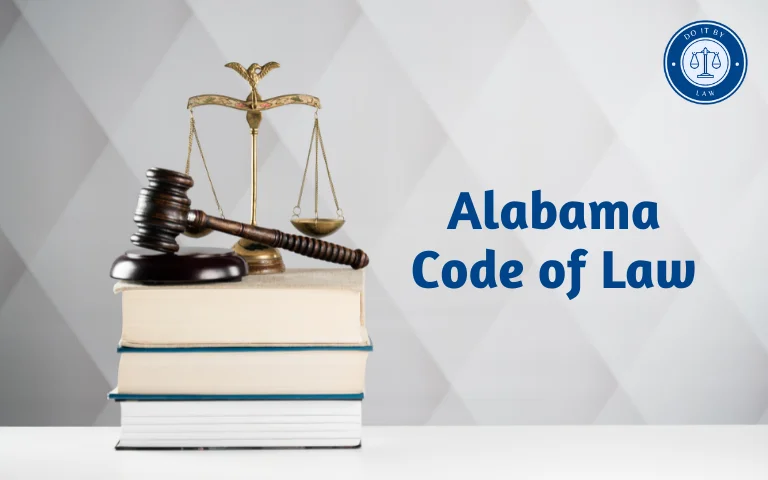Alabama Workers Compensation Law: What You Need to Know
If you are injured on the job in Alabama, workers’ compensation provides benefits to cover injury-related expenses. Navigating Alabama’s workers’ comp system involves understanding your rights, coverage, claims processes, and more. This guide provides an overview of key provisions in Alabama workers’ compensation law.
We’ll cover topics like who is covered, what gets covered, how to file claims, dispute resolutions, the impact of recent legal changes, and some ongoing controversies regarding Alabama’s workers’ comp policies.
When Alabama Workers’ Compensation Law Were Enacted and Why
Alabama enacted its first Workers’ Compensation Act in 1919 to establish a no-fault system for handling on-the-job injuries. This law came after years of disputes over employer liability and negligence that often left injured workers without adequate remedies.
By creating an administrative process, workers’ comp gave injured employees access to quick payment for medical treatment and lost wages without having to prove employer fault. In exchange for these guaranteed benefits, employees gave up the right to sue employers over work accidents except in extreme cases.
The workers’ comp system balances support for injured workers with protections for employers against expensive litigation. Several amendments have updated Alabama’s law over the decades, but this compromise remains central today.
Who Alabama Workers’ Compensation Law Applies To
Alabama’s workers’ compensation law applies to most employees who suffer job-related illnesses or injuries, with a few exceptions.
Covered employees include:
- Most private-sector workers
- State and local government employees
- Agricultural workers
- Domestic workers
- Employees of non-profit groups
Exempt employees include:
- Casual laborers
- Independent contractors
- Some farm laborers
- Domestic workers employed less than one year
- Workers’ family members in a sole proprietorship
- Some railroad and maritime workers
Overall, nearly all employees are entitled to workers’ comp benefits for work-related injuries in Alabama. Employers are required to carry workers’ comp insurance.
Key Provisions of Alabama Workers’ Compensation Law
Some key components of Alabama’s workers’ compensation system include:
- No-Fault: Injured workers don’t have to prove employer negligence to receive benefits. Just showing the injury occurred at work is enough.
- Medical Benefits: Workers’ comp covers all reasonable and necessary medical costs related to the injury like doctor visits, hospitalization, physical therapy, medication, and medical devices.
- Lost Wages: If missing work due to an injury, workers get a portion of their weekly wages replaced. Currently up to $230-$288 per week depending on average weekly wage.
- Permanent Disability: Additional lump sum payouts if the injury causes a permanent loss of bodily function or disfigurement. The payout amount depends on severity.
- Death Benefits: If the work injury is fatal, benefits like funeral expenses and wage replacement for dependents are provided.
- Exclusive Remedy: In most cases, workers’ comp is the exclusive remedy. Employees give up the right to sue the employer in civil court for damages.
How to File a Workers’ Comp Claim in Alabama
The basic steps to file a workers’ comp claim in Alabama:
- Report the injury to your employer immediately and get medical treatment.
- Your employer must file a First Report of Injury form with the state.
- See an approved physician who can recommend benefits like lost wage replacement.
- Review and sign a Final Settlement Receipt if you accept the benefits determination.
- Appeal to the Court of Civil Appeals within 30 days if you dispute the benefits awarded.
An experienced workers’ comp attorney can provide guidance for injured workers during the claim and appeal processes. There are deadlines for taking action, so prompt claims filing is key.
Penalties for Violating Alabama Workers’ Compensation Law
Workers’ comp fraud in Alabama has penalties for both employees and employers who violate rules.
For employees, making intentionally false statements or representations to obtain benefits illegally can lead to:
- Felony fraud charges.
- Fines up to $10,000.
- Imprisonment from 1 to 10 years.
- Repayment of up to triple the benefits received unlawfully.
For employers who fail to carry proper workers’ comp insurance, consequences include:
- Civil penalties up to $100 per day of noncompliance.
- Misdemeanor charges for knowing violations.
- Cease and desist orders compelling compliance.
- Possible denial of the exclusive remedy protection from lawsuits.
These penalties emphasize all parties must comply with Alabama workers’ comp mandates.
Recent Changes to Alabama Workers’ Compensation Law
Some recent notable changes to Alabama workers’ comp laws include:
- In 2016, maximum benefits were raised by 6.4% after being frozen for nearly 30 years.
- A 2017 law created an ombudsman program to provide neutral assistance with claim disputes.
- Updates in 2019 and 2020 raised maximum payouts for permanent partial disability benefits.
- A 2021 law extended the deadline for filing cumulative trauma claims from 2 to 3 years.
While these changes expanded benefits, advocates say more major reforms are needed to improve fairness for injured Alabama workers. They will continue pushing for updates.
Controversies and Issues With the Alabama Workers’ Comp System
Despite reforms, Alabama’s workers’ compensation system still garners criticism including:
- Benefit levels lag most states, only covering two-thirds of the average weekly wage.
- Permanent total disability maxes out at $220 a week, among the lowest in the nation.
- Lack of partial disability benefits for less severe impairments.
- Strict caps on legal fees hinder injured workers from getting attorneys.
- The dispute resolution process favors employers over workers.
- Racial disparities with claims handling and benefit awards.
Addressing these issues remains an ongoing battle. Alabama policymakers resist sweeping expansions of worker benefits and costs for employers. But calls for an equitable modernization of the system persist.
Conclusion: Key Takeaways on Alabama Workers’ Compensation Law
In summary, key takeaways on Alabama’s workers’ compensation policies include:
- Workers’ comp provides medical, wage, and disability benefits for job injuries.
- Most employees are covered, but some exemptions exist.
- Claims involve set processes through the state system.
- Penalties deter fraud by workers and non-compliance by employers.
- Reforms have increased benefits but lag national standards.
- Debates continue over improving fairness for injured Alabama employees.
Workers’ comp remains crucial protection for Alabama’s working population. Understanding your coverage, rights, and claim options empowers you to access the benefits you deserve.
Frequently Asked Questions About Alabama Workers’ Comp
Conclusion
I hope this detailed overview has helped explain key provisions and processes related to claiming Alabama workers’ compensation benefits if you suffer a workplace injury. Don’t hesitate to seek additional legal guidance to protect your rights and maximize the benefits you may be entitled to. Please let me know if you have any other workers’ comp questions.







